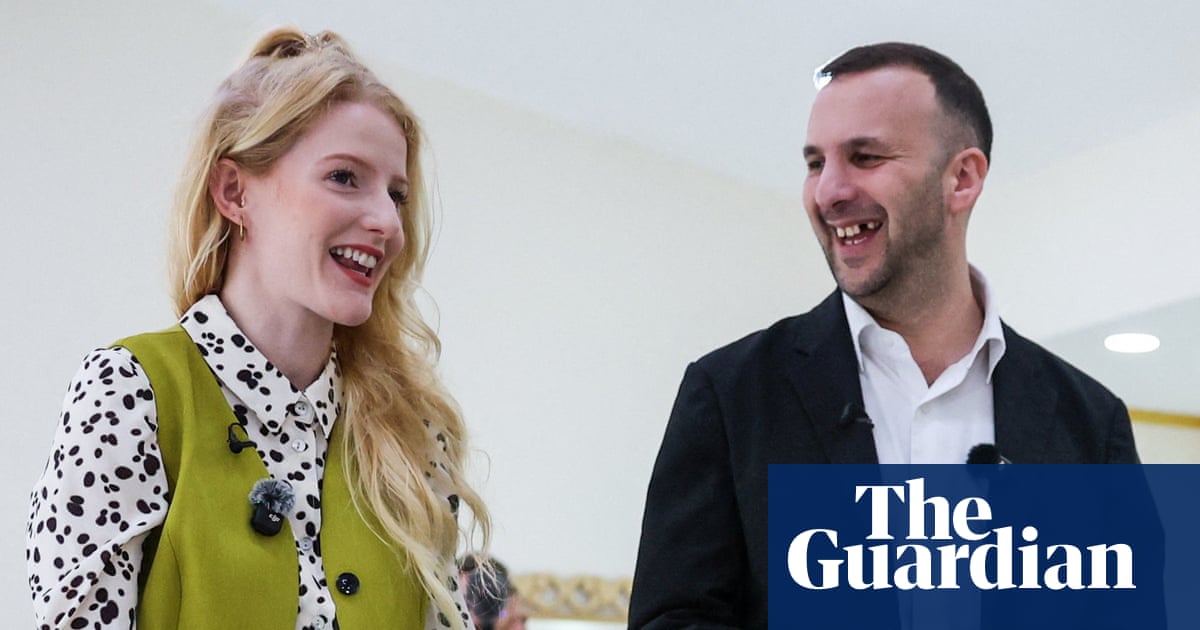There aren’t many people who understand the stress that the celebrity Traitors Cat Burns and Alan Carr have been feeling as their stint wearing that famous green cloak draws to an end – but I do. I spent four weeks lying, cheating and murdering friends and colleagues in our office version of The Traitors.
I almost lost my mind.
Everyone watches The Traitors and sees the contestants, Traitors and Faithfuls alike, act irrationally and make poor decisions and thinks: “That wouldn’t be me. I’d be rational. I wouldn’t be Linda from series three, immediately giving the game away. I’d be Harry from series two, emotionally manipulating a girl with a colostomy bag.”
Reader, I was once like you. I was so certain of my rationality that on New Year’s Day I tweeted my confidence I would be “extremely normal” if I were ever on the show.
Little did I know that one of my colleagues was donning metaphorical eyeliner and fringe to act as Claudia Winkleman. Just a week later, I received a Slack explaining that three of my colleagues and I had been selected as Traitors in a game in my office. I’m not sure why God chose this example to teach me a lesson about being careful what you wish for. Or was it about pride? I’m just glad the stakes were so low. And maybe his message should have been clearer.
The rules were simple. Everyone in the office had been made either a Faithful or a Traitor. In the morning, the Traitors’ latest victim would be announced on Slack. In the evening, we’d vote on who we wanted to banish. If there were any Traitors left at the end of the game, the Traitors would win the grand prize, a day of annual leave. On paper, it all seems like a low-stakes team-building exercise. No one was competing so they could afford a bionic hand, as Nicky did in season one. And I’m sure the colleague who donned the metaphorical eyeliner as our Claudia didn’t intend to induce McCarthy-level paranoia in me. But she did.
I left the Slack channel we were in at once. The idea of forming a brand-new group called “Project costs”, with four people from entirely different parts of the business, seemed too suspicious to me. We moved to a WhatsApp group, our digital turret. It was easier than trying to have hooded meetings in the supply cupboard after work.
We called the group “Nan’s birthday” so that it could be open on our work laptops without attracting suspicion. To make it seem more authentic, I made the group photo an actual photo of my nanna at her 90th birthday. Only when I’d saved my fellow Traitors’ numbers under fake names was I happy that the digital level of OpSec was high enough.
In person, it was a different story. We were subjected to a 24/7, cross-platform interrogation. WhatsApps, pitch meetings, client lunches – all became accusatory terrain. Lying became second nature. I lied to colleagues as I warmed up my lunch in the microwave, I lied at work drinks, I even lied to my manager who worked in a different office, and wasn’t even playing the game.
I spoke about almost nothing else. I’d wake my girlfriend up, boring her stupid about what Faithfuls had which theories, and who had nearly been caught, and who we were going to murder next. I dreamed about it.
There was a farcical moment where I discussed the game with some colleagues on my PoliticsJOE podcast. Through gritted teeth, I claimed to be a Faithful. Now I wasn’t just lying to people I knew. I felt like Richard Nixon.
On the way up to Manchester with two Faithful colleagues, we didn’t talk about anything apart from who we thought were Traitors and Faithfuls. We turned the spotlight on one another, each subjected to about 45 minutes of scrutiny. After my turn, my colleagues looked at each other.
“You’d have to be some sort of psychopath to be able to lie like that,” one said.
after newsletter promotion
We Traitors went undetected for about four weeks, massacring Faithfuls with barely contained glee. We’d even managed some pretty audacious murders in plain sight. It got to the point where if everything went to plan, we would win without any of us having been voted out. We got cocky. “Surely you expected them to be better than this,” I messaged our Claudia. I imagine that’s when she decided to level the playing field.
You think Jonathan Ross was sweating when Joe Marler revealed the “big dog” theory? Imagine how I felt when our Claudia revived the first two Faithfuls.
Our perfect game ground to a halt. We turned on each other, and one by one were picked off by the Faithfuls. I was eventually banished after a sloppy murder in plain sight, where I loudly offered my boss a “poisoned” Picnic bar.
About a month later, I had to take some time off work due to stress. Who could possibly say whether the two events are related?
-
Ed Campbell is a journalist who reports on British culture, politics and the internet. He also co-hosts the PoliticsJOE podcast

.png) 3 months ago
97
3 months ago
97

















































